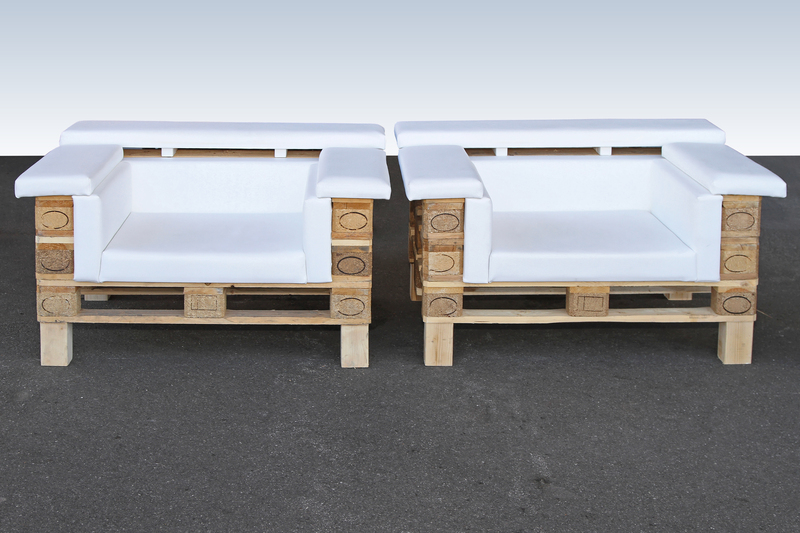Top Ways to Keep Costs Low When Removing Bulky Waste
Removing bulky waste can quickly become an expensive endeavor if not approached strategically. Many homeowners, landlords, and business owners often face significant costs when disposing of large items like furniture, appliances, gym equipment, yard debris, or renovation waste. Fortunately, there are numerous cost-effective methods for bulky waste removal. This comprehensive guide explores the top ways to keep costs low when removing bulky waste, offering practical tips that will save you time, money, and effort.
Understanding Bulky Waste and the Factors Affecting Removal Costs
Bulky waste generally refers to large, heavy, or awkward items that cannot be collected through standard weekly waste collection services. Common examples include:
- Old furniture such as sofas, mattresses, and wardrobes
- Large household appliances (fridges, washing machines, ovens)
- Garden debris and tree branches
- Remodeling and construction waste
- Carpets and rugs
Several factors influence the cost of bulky waste removal:
- Volume and weight of items
- Type of waste (hazardous, recyclable, or general)
- Accessibility (are items easy to collect?)
- Distance to disposal facility
- Local council regulations and fees
- Labor requirements
By understanding these factors, you'll be better equipped to explore affordable bulky waste disposal options.

Main Strategies to Minimize Bulky Waste Removal Expenses
1. Consider Donation and Reuse Options
Before disposing of bulky items, determine if anything can be donated or reused. Many charities and nonprofits accept furniture, appliances, and other large goods, provided they're in usable condition. Some may even offer free pick-up services for certain items, saving both money and effort.
- Contact local thrift stores, shelters, or community groups.
- Use online marketplaces (e.g., Freecycle, Facebook Marketplace) to give away or sell unwanted items.
- Organize a garage sale to help your items find a new home and offset other removal costs.
Donating items not only supports those in need but also reduces landfill waste and your own removal expenses.
2. Utilize Local Council Bulky Waste Collection Services
Many local councils offer affordable or even free bulky waste pickup services for residents. Typically, these services allow a certain number of collections or items per year at reduced rates. Check your council's website to determine what options are available to you and book in advance--some areas have long wait lists.
- Review local schedules for collection days and eligible items.
- Comply with guidelines (e.g., separating mattresses from other waste, placing items on the nature strip at specific times).
- Combine your booking with neighbors to maximize value if collective pickups are allowed.
Using public services is among the cheapest ways to dispose of bulky waste, especially for non-commercial volumes.
3. Break Down and Sort Bulky Waste
Disposal costs are often based on the volume or weight of your waste. By disassembling and sorting items, you can:
- Reduce the volume for collection or skip bin hire
- Separate recyclable materials (metal, wood, plastic) for free drop-off at recycling centers
- Make it easier for collectors to handle, possibly lowering labor fees
Investing a little time and effort here makes the removal process smoother and often much more affordable.
4. Hire a Skip Bin Strategically
Skip bins are popular for large-scale waste removal projects, but they can be costly if not sized and used correctly. To save money on skip bin hire for bulky waste:
- Estimate the precise bin size needed; avoid paying for unused space
- Opt for co-mingled or specific waste bins (e.g., 'clean fill' only, which can be cheaper)
- Share a bin with neighbors if you all have bulky waste--split the costs
- Compare prices from several local providers before booking
- Load the bin efficiently, breaking down items to make the most of every cubic meter
By planning ahead and maximizing bin volume, you'll significantly reduce unnecessary spending.
5. Arrange a Man & Van Rubbish Removal Service
A 'Man & Van' service can offer flexibility and convenience for mid-sized bulky waste disposal projects. These services usually price by volume and labor time. To keep costs low:
- Have all items ready and easily accessible for pickup
- Combine pickups with neighbors, friends, or nearby businesses
- Sort recyclables ahead of time to minimize standard waste volume
Always request a clear, itemized quote to avoid hidden charges.
6. Take Advantage of Recycling and Drop-Off Centers
Most communities have recycling drop-off points for appliances, electronics, scrap metal, and other large items. Sometimes, these centers accept bulky waste for free or a nominal fee.
- Check with your council or local landfill for open days or free drop-off events
- Find specialist recycling centers for niche items--mattresses, white goods, or e-waste
- Carpool your visits with friends or neighbors to split fuel costs
This is a cost-saving bulky waste removal strategy that also benefits the environment.
7. DIY Transport to the Local Dump or Transfer Station
If you have access to a suitable vehicle (like a trailer or ute), you can transport bulky waste to the tip yourself. Most local dumps charge by weight or vehicle size and are often cheaper than commercial service providers.
- Sort and pack items to minimize trips and maximize each load
- Wear protective gear for heavy or hazardous waste
- Check prices beforehand and bring proof of residency for any discounts
While DIY waste disposal does require physical effort, it's one of the absolute cheapest methods for disposing of large items.
8. Schedule Bulk Waste Removal During Off-Peak Times
Some waste management providers offer discounts during quieter periods (e.g., winter or weekdays). Inquire with local companies about "off-peak" pricing or group booking deals--these can provide substantial savings.
9. Avoid Fines by Following Local Regulations
If you'd like to avoid costly penalties, ensure your bulky waste is disposed of responsibly. Illegal dumping or using unauthorized contractors could result in significant fines, undermining your effort to save money.
- Only use licensed and insured removal services
- Never place hazardous materials in general collection bins
- Check your council's website for accurate guidelines on acceptable items
Extra Tips for Low-Cost Bulky Waste Disposal
- Ask friends or neighbors to help with heavy lifting, saving on labor fees
- Organize a community cleanup day and pool resources
- Search for local grants or incentive schemes for recycling large appliances
- Rent or borrow tools to break down items instead of hiring additional labor
- Consult your insurance policy--occasionally, coverage includes storm debris removal
Implementing these practical approaches can further decrease your bulky waste removal costs and turn a potential headache into a manageable task.

Frequently Asked Questions about Affordable Bulky Waste Removal
Q1: Can I leave bulky waste on the curb for free collection?
A: Some councils provide curbside bulky waste pickup days, but always check your area's policy. Unattended items can attract fines or illegal dumping investigations if left out at the wrong time.
Q2: What items cannot be disposed of as bulky waste?
A: Hazardous materials (such as paint, chemicals, or asbestos), car parts, and certain electronics may require specialist disposal. Review your council or disposal company's guidelines to avoid surprise fees.
Q3: How can businesses cut costs when managing bulky commercial waste?
Commercial waste removal can be more expensive due to volume and regulations. Strategies include negotiating contracts with waste management providers, breaking down and sorting recyclable materials, and arranging for bulk pickups with nearby businesses to gain volume discounts.
Conclusion: Save Money and the Environment When Removing Bulky Waste
Minimizing the costs associated with bulky waste removal doesn't have to be complicated or labor-intensive. The smartest strategies emphasize reuse, recycling, planning, and teamwork. By leveraging council services, seeking donation and reuse opportunities, choosing the right disposal providers, and tapping into community resources, you can efficiently dispose of large items while keeping your expenses low.
Remember, the best approach combines multiple cost-saving methods--break down items, compare quotes, use public services, and plan ahead. This not only helps your wallet but also encourages responsible waste management and environmental stewardship.
Make your next bulky waste disposal project stress-free, eco-friendly, and budget-friendly by applying these practical tips and tricks. Keep costs low, and reclaim your space with confidence!
